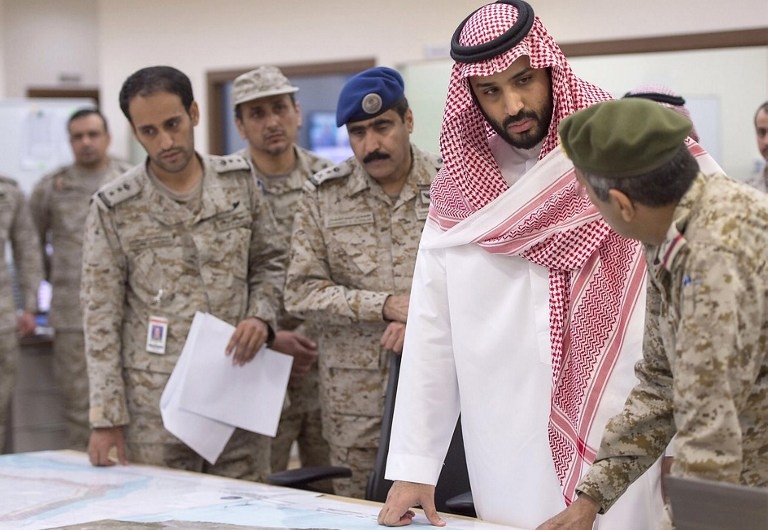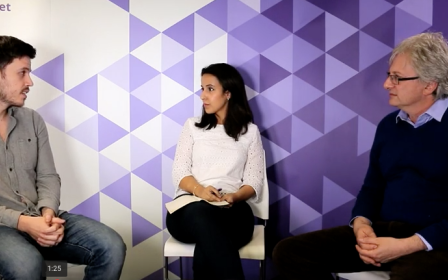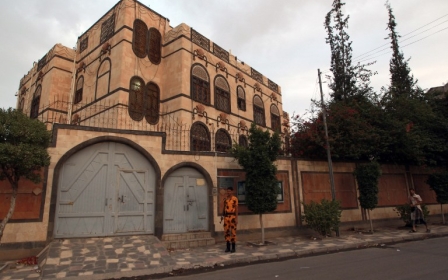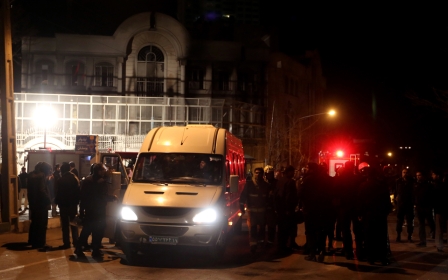Saudi deputy crown prince: War with Iran not foreseen 'at all'

Saudi Arabia does not foresee war with Iran “at all” despite the latest diplomatic row that has broken out between the two countries, the kingdom’s deputy crown prince reportedly said this week.
Tensions between the two regional rivals have heightened after 47 people, including top Shia cleric Nimr al-Nimr, were executed in the kingdom last week. In reaction, protesters attack Saudi Arabia’s embassy in Tehran, which led to Saudi Arabia and other states cutting or downgrading diplomatic ties with Iran.
On Thursday, in the latest scuffle, Iran accused Saudi of deliberately striking its embassy in Yemen during an air strike, a claim the Saudi-led coalition has denied.
But in an interview published in this week’s Economist, Prince Mohammed bin Salman reportedly told the magazine that war between the two countries is “not foreseeable”.
"It is something that we do not foresee at all, and whoever is pushing towards that is somebody who is not in their right mind,” he was quoted as saying.
Saudi diplomatic relations were broken off with Iran, the prince said, to prevent an escalation of tensions, not to provoke Tehran.
“Imagine if any Saudi diplomat, or one of their families or children are attacked in Iran. Iran’s position then will be much more difficult. So we prevented Iran from having to undergo such an embarrassment,” he was quoted as saying.
“If a child, or a diplomat, or their families are attacked, what could happen? Then we will have the real conflict and the real escalation,” he reportedly said.
The deputy crown prince, who as the kingdom’s defence minister has overseen the country’s campaign against the Houthis in Yemen, sought to distance himself as the final decision maker behind Saudi’s entrance into the war and said it was unclear when it would end.
“Nobody can predict that in a war, not from the greatest of generals to the smallest of generals,” he is quoted as saying.
“But what I could say was 10 months ago half of Aden was not in control of government, and now over 80 percent of Yemeni lands are under the control of the legitimate government.”
New MEE newsletter: Jerusalem Dispatch
Sign up to get the latest insights and analysis on Israel-Palestine, alongside Turkey Unpacked and other MEE newsletters
Middle East Eye delivers independent and unrivalled coverage and analysis of the Middle East, North Africa and beyond. To learn more about republishing this content and the associated fees, please fill out this form. More about MEE can be found here.




